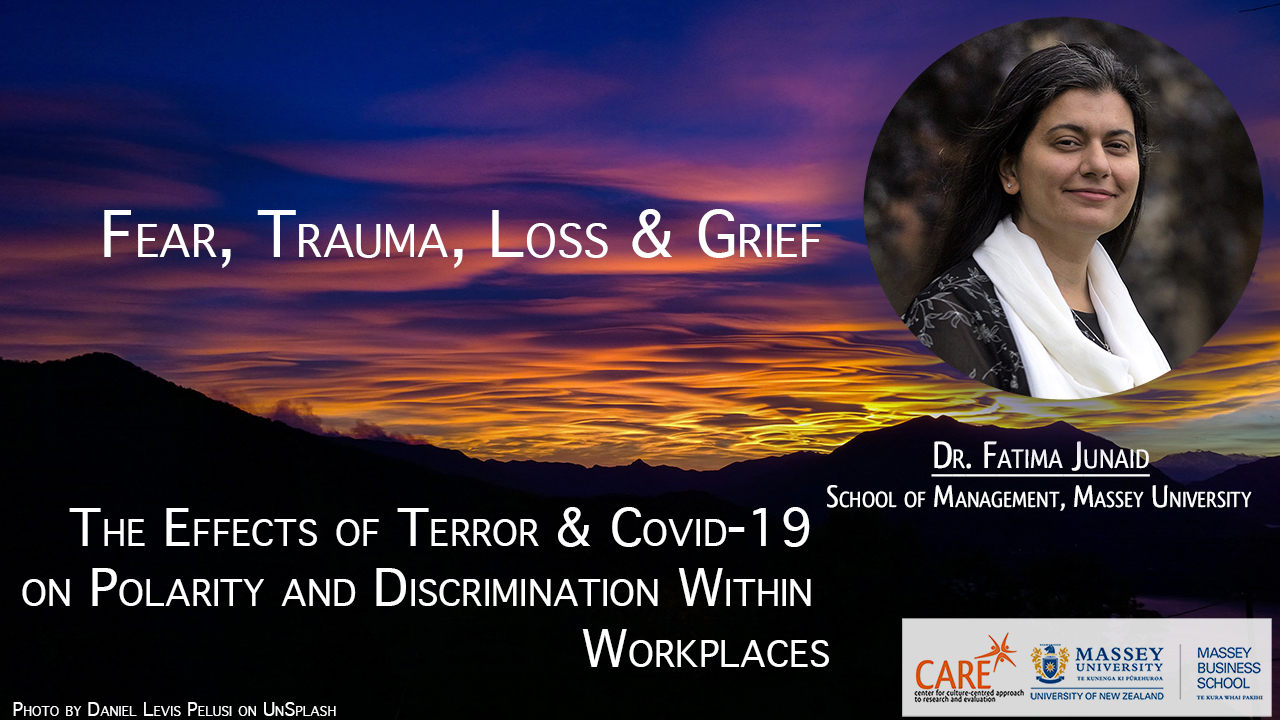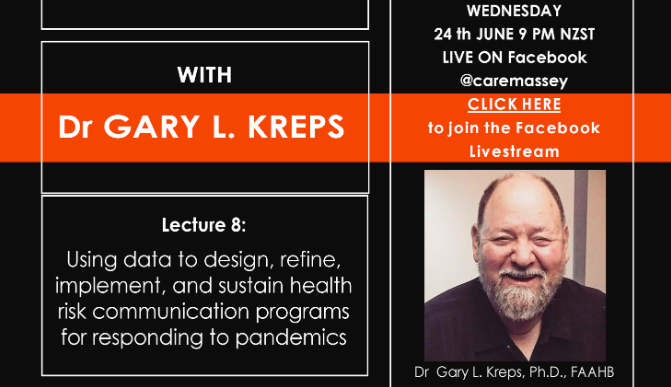CARE COVID19 Lecture Series- Fear, Trauma, Loss and Grief: The effects of Terror and Covid-19 on Polarity and Discrimination within Workplaces with Dr Fatima Junaid, School of Management, Massey University
Event Details:
Monday, 15th February 2021 @ 6PM NZDT
Facebook Livestream: @CAREMassey
Link: https://www.facebook.com/CAREMassey/posts/4525821997434170
Abstract:
In this talk Fatima talks about the implications of prolonged exposure to terrorism, and the current context of Covid-19. She highlights the influence of stress and trauma due to loss, and how that impacts us in terms of drawing closer to those we trust, while the fear of death makes our social attitudes rigid, especially towards those who are different. This complexity can cause polarity and discrimination within workplaces.
#Fear #Trauma #Loss #Grief #EffectsOfTerror #Covid19 #Polarity #Discrimination #Workplaces #CARECOVID19LectureSeries #CARECCA #CAREMassey #MasseyCJM #MasseyUni


